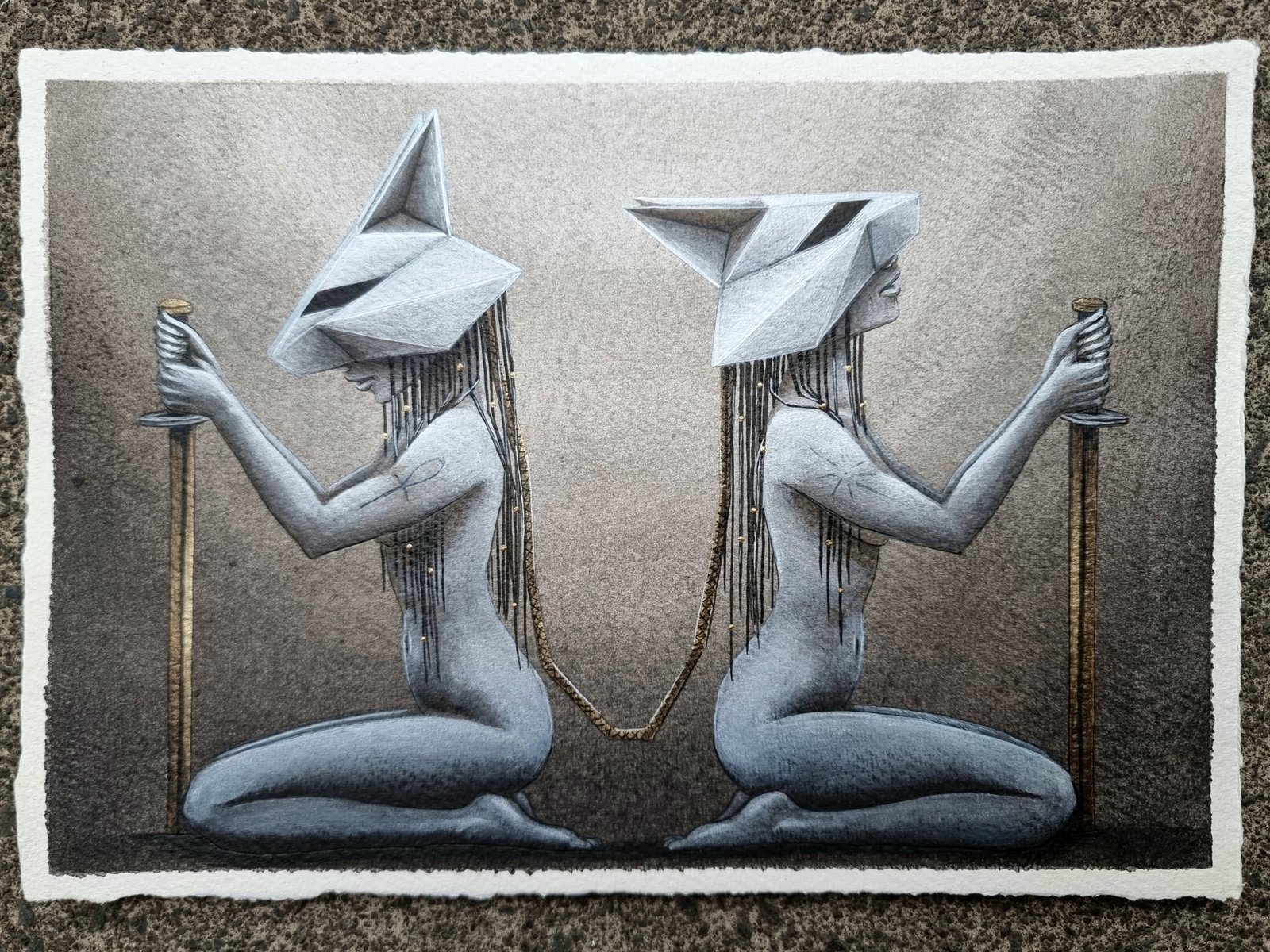In today's fast-paced world, standing out from the crowd has never been more important. Whether you're an artist, a business professional, or simply someone navigating everyday life, originality is the key to making an impact. Originality isn't just about being different for the sake of it; it's about offering something unique that resonates with others. From groundbreaking inventions to creative works of art, original ideas have shaped civilizations and continue to drive progress. But what does it truly mean to be original, and why is it so vital in today’s competitive landscape?
Originality is more than a buzzword; it’s a mindset. It’s about challenging the status quo, embracing your individuality, and daring to think outside the box. In a world saturated with content, products, and services, being original allows you to carve out your own niche and leave a lasting impression. Businesses that prioritize originality often see higher engagement and customer loyalty, while individuals who embrace their unique qualities tend to lead more fulfilling lives. Originality is not just a trait; it’s a superpower waiting to be unleashed.
As we delve deeper into this topic, we’ll explore what originality means in various contexts, how you can cultivate it, and why it’s a critical factor in achieving success. Whether you’re an entrepreneur looking to innovate or someone seeking personal growth, understanding the essence of originality can transform the way you approach challenges and opportunities. Let’s embark on this journey to unlock the potential of originality and discover how it can elevate your life and work.
Read also:Unlocking The Power Of Ibooma A Comprehensive Guide To Boost Your Online Presence
Table of Contents
- What Does It Mean to Be Original?
- Why Is Originality Important in Creative Fields?
- How Can You Cultivate Original Thinking?
- Is Originality Just About Being Different?
- What Are the Benefits of Originality in Business?
- Can Originality Be Taught or Learned?
- How Does Originality Impact Personal Growth?
- What Are Some Real-Life Examples of Originality?
What Does It Mean to Be Original?
Originality is often misunderstood as simply being different or unconventional. However, its true essence lies in creating something that is both authentic and valuable. To be original is to bring forth ideas, products, or actions that are not merely copies of existing concepts but are instead born from a unique perspective. This uniqueness doesn’t necessarily mean reinventing the wheel; it can also involve reimagining or improving upon existing ideas in ways that feel fresh and impactful.
For example, consider the world of technology. Many groundbreaking innovations, such as the smartphone or electric car, were not entirely new concepts. Instead, they were original iterations of existing technologies, designed to solve problems in more efficient or user-friendly ways. This highlights an important aspect of originality: it’s not just about novelty but also about relevance and utility. Being original requires a deep understanding of your audience or market and the ability to anticipate their needs.
Originality also involves taking risks. It’s about stepping outside your comfort zone and challenging conventional wisdom. This can be daunting, as it often involves facing criticism or uncertainty. However, the rewards of originality can be immense. Whether it’s gaining recognition for your work, building a loyal customer base, or simply feeling proud of your contributions, originality has the power to transform both your personal and professional life.
Why Is Originality Important in Creative Fields?
In creative industries such as art, music, writing, and design, originality is the lifeblood of success. These fields thrive on innovation and fresh perspectives, making originality a highly sought-after quality. Without originality, creative works risk blending into the background, lost in a sea of sameness. But what makes originality so critical in these domains?
Standing Out in a Crowded Market
The creative world is more competitive than ever, with millions of artists, musicians, and writers vying for attention. In such a saturated environment, being original is the key to standing out. Consider iconic figures like Vincent van Gogh or Frida Kahlo. Their works were not just technically proficient but also deeply personal and unique, allowing them to leave an indelible mark on the art world. Originality in creative fields often stems from an artist’s ability to channel their individual experiences and emotions into their work, creating pieces that resonate on a profound level.
Driving Cultural and Social Change
Originality in creative fields doesn’t just benefit the creator; it also has the power to influence society. Groundbreaking works of art, literature, and music often challenge societal norms and spark important conversations. For instance, novels like George Orwell’s *1984* or films like *Black Panther* have pushed boundaries and inspired change by presenting original narratives that reflect the complexities of the human experience. In this way, originality becomes a catalyst for progress, encouraging audiences to think critically and embrace new perspectives.
Read also:The Ultimate Guide To S Com Wood Benefits Uses And Sustainability
How Can You Cultivate Original Thinking?
While some people seem naturally inclined toward original thinking, it’s a skill that can be developed with practice and intention. Cultivating originality requires a combination of curiosity, openness, and a willingness to experiment. Below are some strategies to help you nurture your original thinking abilities.
Embrace Curiosity and Lifelong Learning
One of the hallmarks of original thinkers is their insatiable curiosity. They are constantly asking questions, seeking knowledge, and exploring new ideas. To cultivate originality, make a habit of learning something new every day. This could involve reading books outside your usual genre, attending workshops, or engaging in conversations with people from diverse backgrounds. The more you expose yourself to different perspectives, the more likely you are to generate unique ideas.
Challenge Assumptions and Take Risks
Originality often arises when you question the status quo. Instead of accepting things at face value, ask yourself why certain rules or conventions exist and whether they can be improved. Taking risks is also crucial. Many original ideas fail before they succeed, but each failure provides valuable lessons. By embracing a mindset of experimentation, you create opportunities for breakthroughs that might not have been possible otherwise.
Is Originality Just About Being Different?
When people hear the word “original,” they often equate it with being different or unconventional. While these qualities are certainly aspects of originality, they don’t tell the whole story. Originality is not just about standing out for the sake of it; it’s about offering something of value that feels fresh and meaningful.
Understanding the Difference Between Novelty and Value
Novelty alone does not equate to originality. For instance, creating something that is completely different but lacks purpose or utility may not resonate with others. True originality balances novelty with relevance. It’s about solving problems, addressing needs, or evoking emotions in ways that feel innovative yet relatable. This balance is what makes original ideas impactful and enduring.
The Role of Authenticity in Originality
Authenticity is another critical component of originality. Being authentic means staying true to your values, experiences, and vision. When you create from a place of authenticity, your work naturally feels original because it reflects your unique perspective. This is why originality is not a one-size-fits-all concept; it’s deeply personal and varies from individual to individual.
What Are the Benefits of Originality in Business?
In the business world, originality can be a game-changer. Companies that prioritize originality often enjoy a competitive edge, as they are able to differentiate themselves in crowded markets. But what specific benefits does originality bring to the table?
Building a Strong Brand Identity
Originality is essential for creating a memorable brand. Whether it’s through innovative products, unique marketing campaigns, or exceptional customer experiences, businesses that embrace originality are more likely to capture the attention of their target audience. For example, companies like Apple and Tesla have built their success on original ideas that challenge industry norms and set new standards.
Fostering Innovation and Growth
Originality also drives innovation, which is crucial for long-term growth. By encouraging employees to think creatively and experiment with new ideas, businesses can stay ahead of the curve and adapt to changing market conditions. This culture of innovation not only benefits the company but also creates a more engaging and fulfilling work environment for employees.
Can Originality Be Taught or Learned?
While some individuals may seem naturally inclined toward original thinking, the good news is that originality can be cultivated through practice and exposure. It’s not a fixed trait but rather a skill that can be developed over time.
Creating an Environment That Encourages Creativity
One of the most effective ways to foster originality is by creating an environment that supports creativity. This could involve providing access to resources, encouraging collaboration, and rewarding innovative thinking. For example, companies like Google and Pixar have built cultures that prioritize creativity, allowing employees to explore new ideas without fear of failure.
Practicing Techniques to Stimulate Original Thinking
There are also specific techniques that can help stimulate original thinking. Brainstorming sessions, mind mapping, and lateral thinking exercises are just a few examples. These methods encourage individuals to approach problems from different angles and generate ideas that might not have been considered otherwise.
How Does Originality Impact Personal Growth?
Originality is not just important in professional contexts; it also plays a significant role in personal development. Embracing your originality can lead to greater self-awareness, confidence, and fulfillment.
Building Confidence Through Authenticity
When you embrace your unique qualities and express them authentically, you naturally build confidence. This confidence allows you to take risks, pursue your passions, and overcome challenges. Originality empowers you to define success on your own terms, rather than conforming to societal expectations.
Fostering Resilience and Adaptability
Original thinkers are often more resilient and adaptable because they are accustomed to navigating uncertainty and embracing change. This mindset can be incredibly valuable in both personal and professional settings, as it enables you to thrive in dynamic environments.
What Are Some Real-Life Examples of Originality?
To better understand the power of originality, let’s explore some real-life examples of individuals and companies that have embraced originality to achieve success.
- Steve Jobs: As the co-founder of Apple, Jobs revolutionized multiple industries by combining technology with design in ways that felt both innovative and user-friendly.
- Frida Kahlo: Her deeply personal and symbolic paintings challenged traditional notions of art and continue to inspire generations of artists.
- Elon Musk: Through companies like Tesla and SpaceX, Musk has reimagined industries ranging from automotive to space exploration, pushing the boundaries of what’s possible.
Frequently Asked Questions (FAQs)
What is the difference between originality and creativity?
While creativity refers to the ability to generate new ideas, originality focuses on the uniqueness and authenticity of those ideas. Creativity is the process, while originality is the outcome.
How can I overcome fear of judgment when trying to be original?
Start by embracing imperfection and viewing failure as a learning opportunity. Surround yourself with supportive people who encourage your ideas, and remember that every original thinker has faced criticism at some point.
Can originality be applied to everyday life?
Absolutely! Whether it’s finding new ways to solve problems, expressing yourself authentically, or pursuing unconventional hobbies, originality can enrich every aspect of your life.
Conclusion
Originality is a powerful force that has the potential to transform both individuals and industries. By embracing your unique perspective and daring to think differently, you can unlock new opportunities and make a lasting impact. Whether you’re an artist, entrepreneur, or simply someone seeking personal growth, cultivating originality is a journey worth embarking on.
For further reading on the importance of originality, check out this insightful article on Psychology Today.


